Allegory of charity, by Nicola Vaccaro (Naples, 1640 - 1709)
Oil on canvas, cm 119 x 93
With frame, cm 137 x 110
The painter from Bologna, Carlo Cignani, trained with Giovanni Battista del Cairo and Francesco Albani, was strongly influenced by the most famous Emilian painters active in his century and the previous one, namely Annibale Carracci, the Correggio and, for the perspective from below up as well as for the use of color, of Melozzo da Forlì. After the first period of training spent mainly in Bologna, in the early sixties Cignani moved to Rome, where his works of baroque taste were widely appreciated and where he obtained the title of prince of the Academy of San Luca. The artist’s late maturing years were spent between Bologna, his hometown, and Parma. He spent his last period in Forlì, also for the realization of his great masterpiece, the fresco of the dome of the chapel of Our Lady of Fire in the Cathedral. In the Pinacoteca civica di Forlì, instead, you can see the canvas of the Coronation of Santa Rosa and a self-portrait. His, but probably with the help of his son Felice Cignani, is the Virgin and San Filippo Neri, in the same gallery. There is then the Aurora flying towards the blue to bring light and life to the world (1672-1674), in the Albicini palace, also in Forlì: the Aurora represents at its highest degree the refined formal idealism of Cignani, resulting in one of the most beautiful figurative inventions of seventeenth-century Italian art.In this beautiful painting, probably between the end of the 17th century and the beginning of the 18th century, the artist, who from Cignani takes up the monumentality of the figures and the classicism of carraccesca matrix that distinguishes the parable of development of the Bolognese painting of the seventeenth century, takes up a composition created around the 1770s by the Neapolitan artist Nicola Vaccaro. In the Allegory of Charity by Vaccaro, currently held at the National Museum of Medieval and Modern Art of Basilicata in Matera, According to tradition, the Charity is represented as a young girl taking care of three children. In his famous Iconology, crucial text of 1603, the Ripa describes the Charity as a "woman dressed in red dress" who "will hold in her left arm a Child, to whom she will give milk, and two others will be joking at' feet". The three children, according to this author, "demonstrate that although Charity is only one virtue, it has nevertheless tripled power".







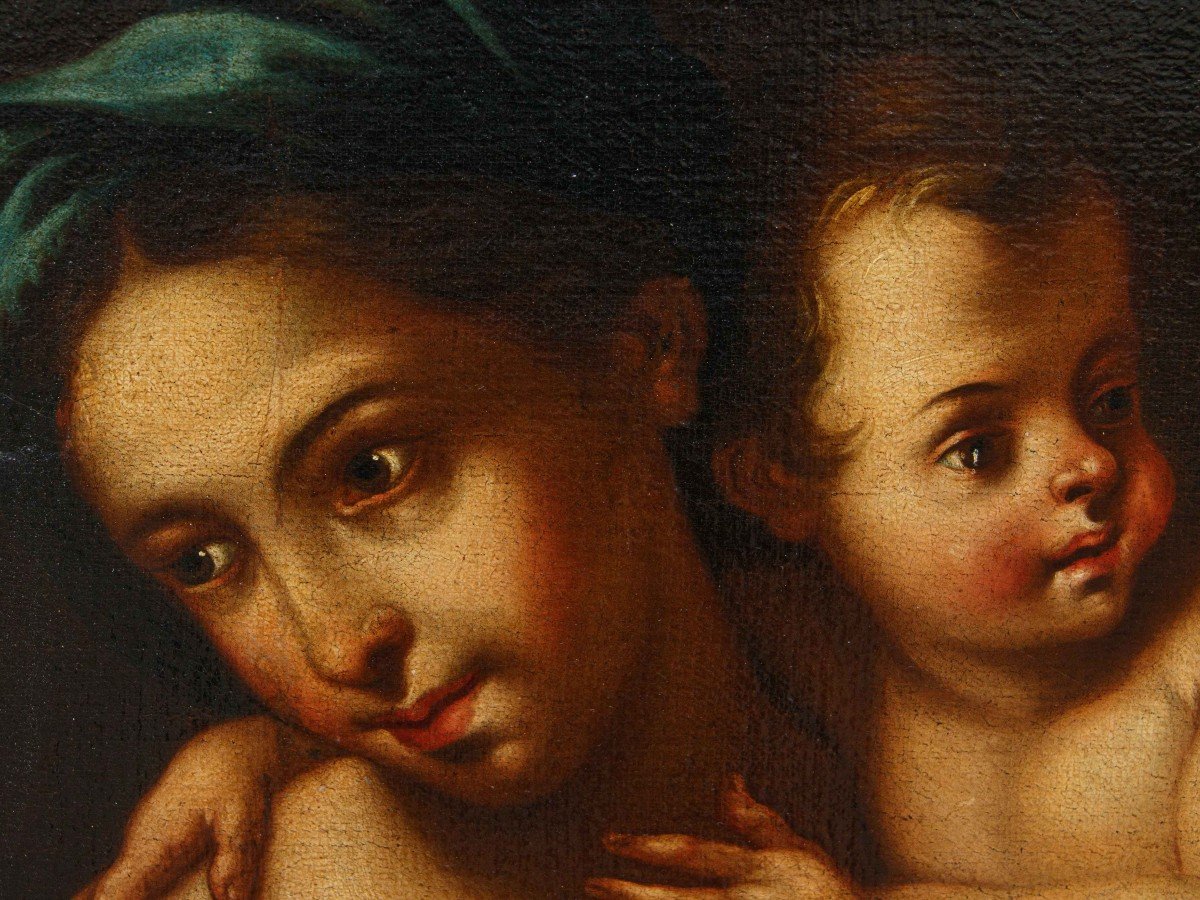


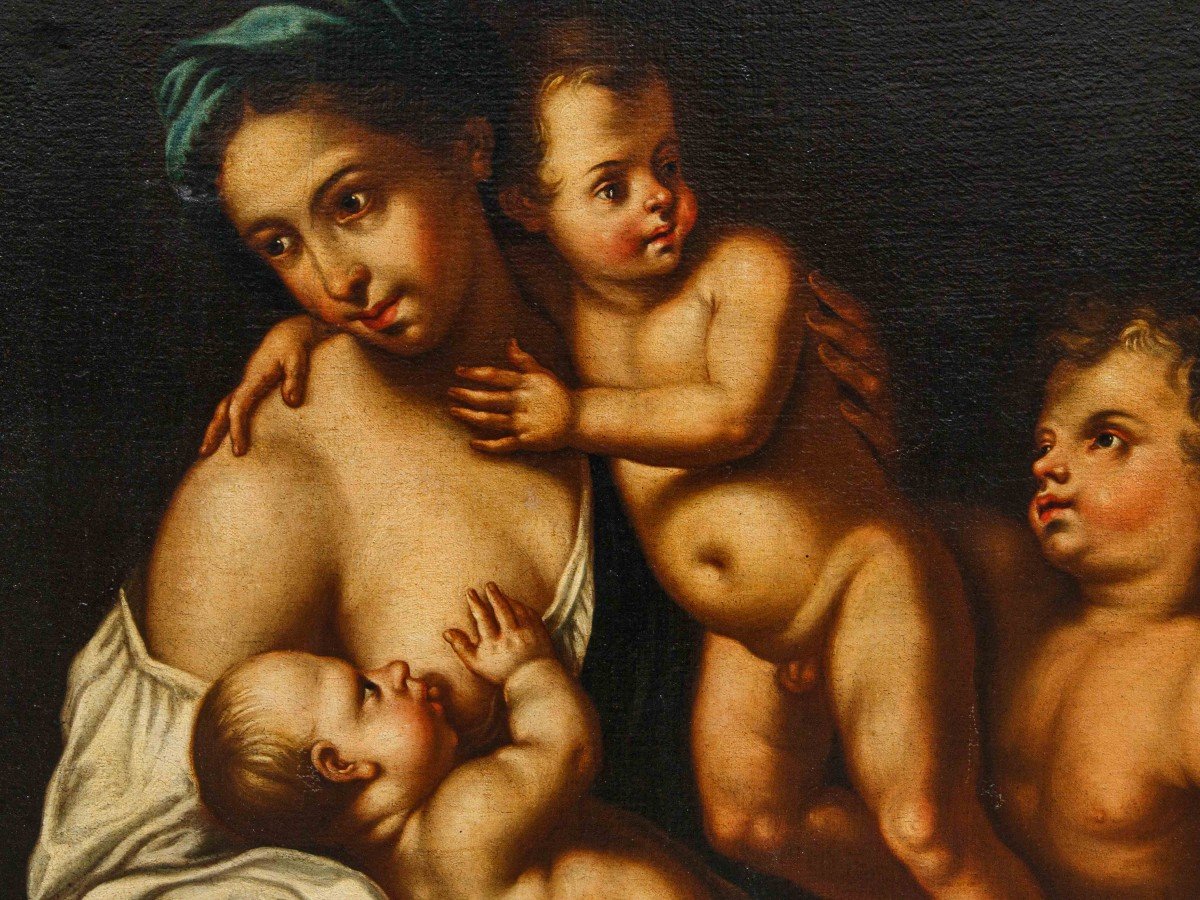
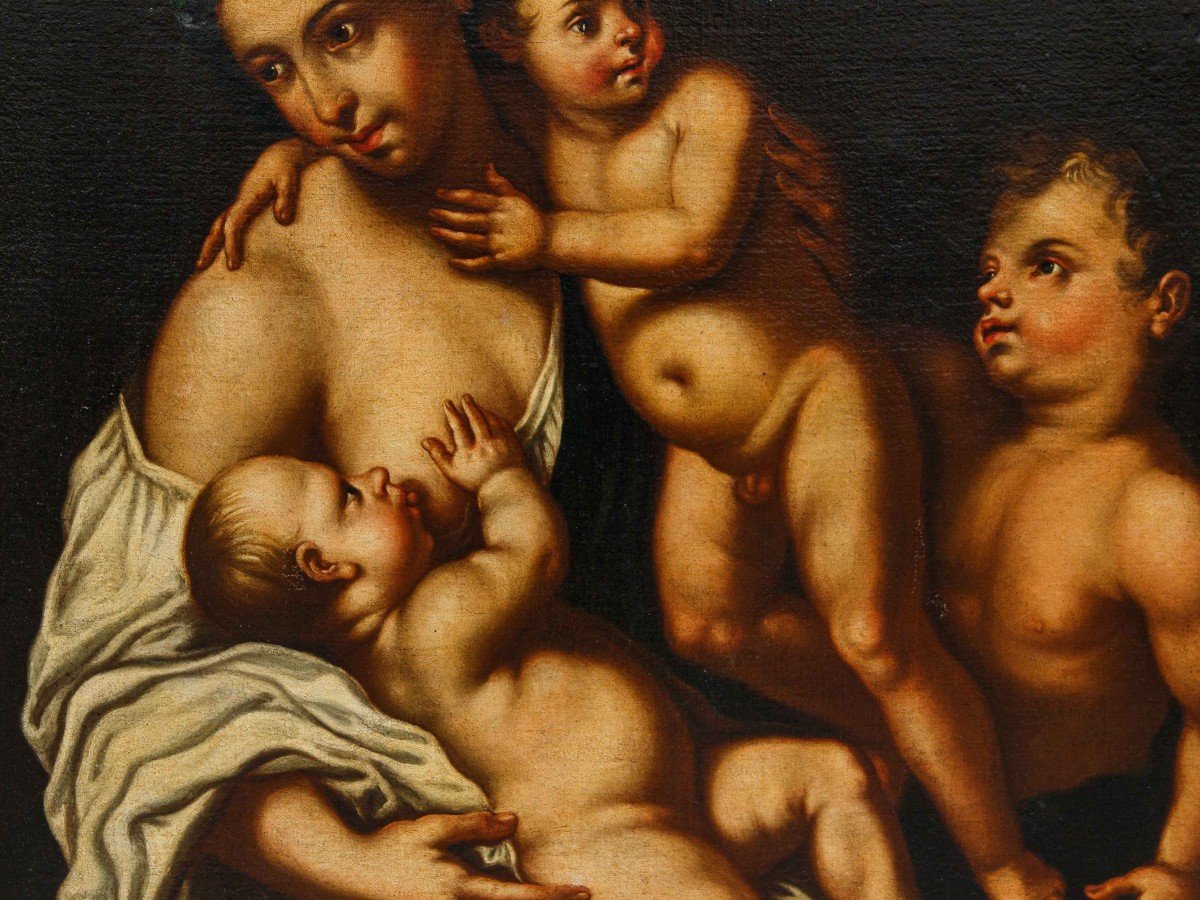















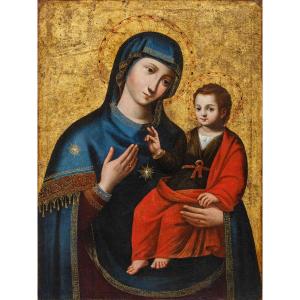





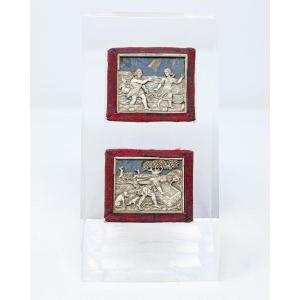



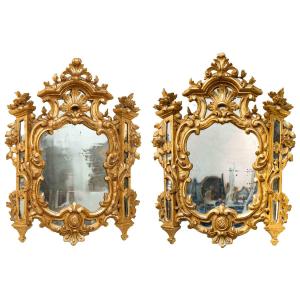



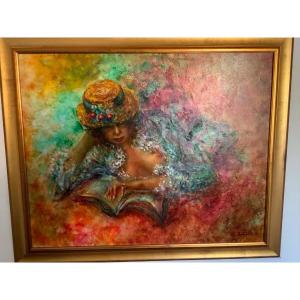

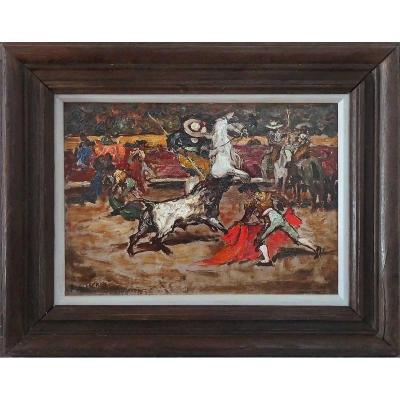




 Le Magazine de PROANTIC
Le Magazine de PROANTIC TRÉSORS Magazine
TRÉSORS Magazine Rivista Artiquariato
Rivista Artiquariato